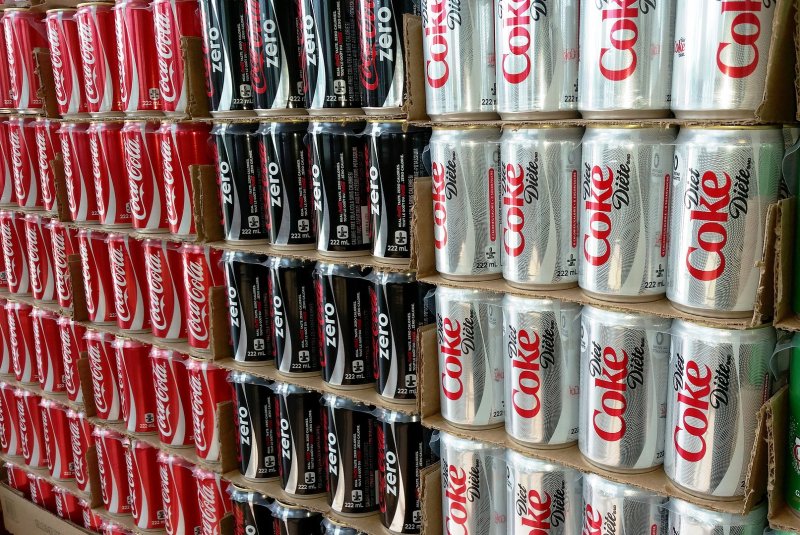Artificial sweeteners found in food and soft drinks may increase cancer risk, according to a new study. Photo by Nica444/Pixabay
March 24 (UPI) -- Consuming foods and soft drinks that use artificial sweeteners as a sugar substitute may increase a person's risk for cancer, a study published Thursday by the journal PLOS Medicine found.
Products containing the commonly used artificial sweeteners aspartame and acesulfame-K increased the risk for cancer for those who consumed them by 13%, the data showed.
The risk was even higher for breast cancer specifically, at 22%, and other so-called "obesity-related" cancers such as stomach, liver and colon and rectal cancers, at up to 15%, the researchers said.
"Artificial sweeteners, which are used in many food and beverage brands worldwide, were associated with increased cancer risk," study co-author Mathilde Touvier told UPI in an email.
"[Our] findings provide important and novel information to address the controversies about the potential adverse health effects of these additives," said Touvier, director of the nutritional epidemiology research team at the Sorbonne in Paris.
The findings do not support the use of artificial sweeteners as safe alternatives for sugar in foods or beverages, though they need to be confirmed in larger studies, she added.
Artificial sweeteners are designed to reduce added sugar content and corresponding calories while maintaining sweetness, according to the National Cancer Institute.
Previous research has called into question the health benefits of artificial sweeteners such as aspartame, sold as NutraSweet or Equal, and sucralose, or Splenda, linking them with Type 2 diabetes and obesity, or being severely overweight.
An earlier study specifically linked Splenda with leukemia, or blood cancers.
However, high consumption of real sugar is also linked with Type 2 diabetes and certain forms of cancer, according to previously published research.
For this study, Touvier and her colleagues analyzed diet and cancer diagnosis data for 102,865 French adults who provided their own medical history and sociodemographic as well as diet, lifestyle and health information.
The researchers estimated artificial sweetener intake for the participants based on their consumption of foods and beverages containing them over a 24-hour period.
Among the participants, 3,358 were diagnosed with some form of cancer, including 601 who were considered "high consumers" of artificial sweeteners and 744 who were determined to be "low consumers," the data showed.
Aspartame accounted for 58% of participants' artificial sweetener intakes, while acesulfame-K and sucralose were 29% and 10%, respectively, the researchers said.
After adjusting for other factors such as participant weight, family history of cancer and overall diet, they determined that those who had higher levels of artificial sweetener intake were at increased risk for cancer compared to those with lower intake levels, they said.
About 4% of consumers of artificial sweeteners developed cancer compared with the 3% of non-consumers, the data showed.
"The recommendation of public health authorities is to limit processed foods with either added sugar or artificial sweeteners," Touvier said.
"This objective must be achieved by reducing the overall sweet taste of food, and this from an early age," she said.















